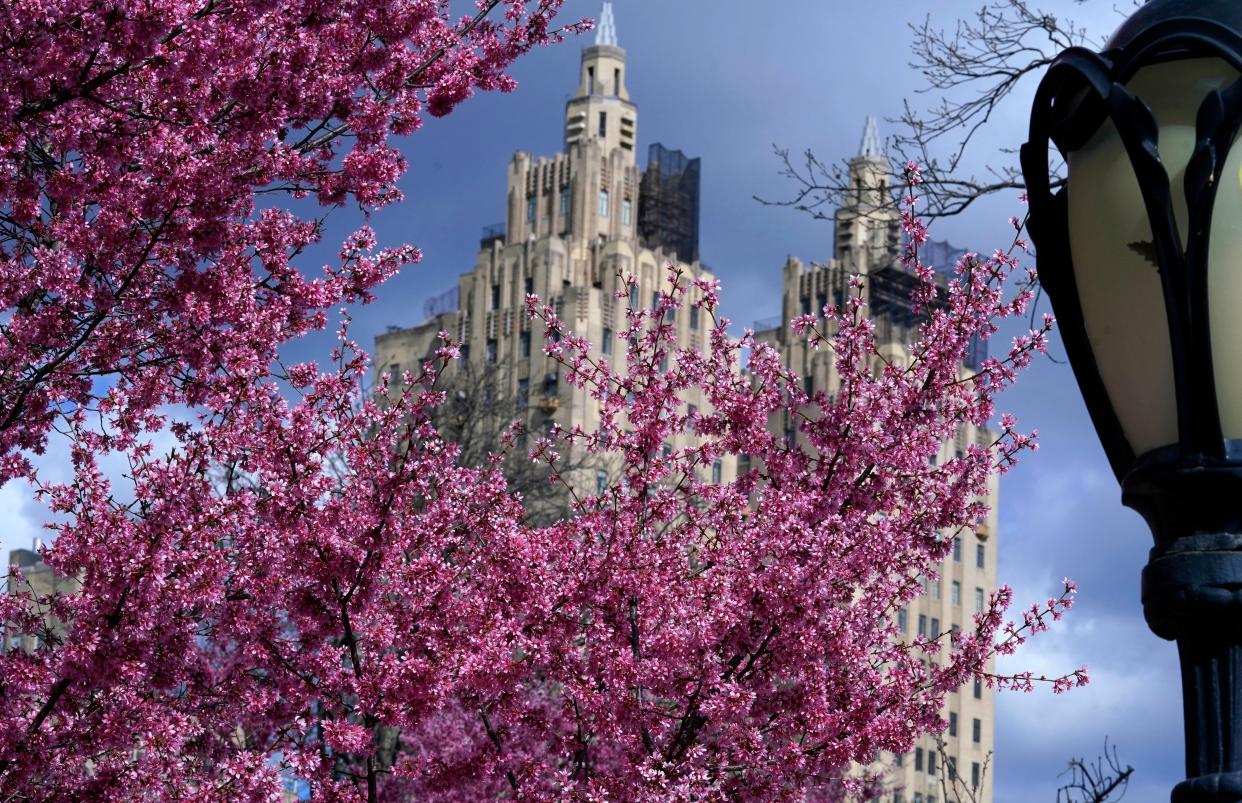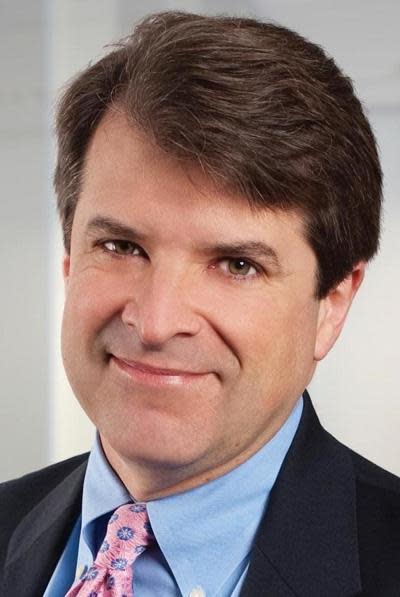Murphy: Trip to Central Park reaffirms potential for us to overcome differences

This is a commentary by Mark Murphy, a local author and physician. He is a longtime contributor to the Savannah Morning News.
As I recently walked through New York City’s Central Park on a beautiful spring afternoon, I marveled at the pluralistic cross-section of the world laid out before me: A Chinese couple took photos of their child in front of the Alice in Wonderland statue. Hasidic Jewish families strolled through the Central Park Zoo, the bearded men in dark clothing wrapped with prayer scarves, wearing elaborate Shtreimel hats made of fur; the women’s hair covered with snoods of various shapes and colors.
Two Indian women in colorful flowing saris strolled arm-in-arm beside the glimmering waters of the pond, while a pair of well-dressed French-speaking men gestured excitedly as they spoke about an art gallery they had recently visited (my collegiate French is admittedly a bit rusty, so I could only make out occasional fragments of their conversation, but I did hear “Monet” and “Renoir”). Here, a pair of smiling Muslim women, their heads covered with white hijab scarves, sat on a bench eating ice cream; there, a group of Hispanic kids played an enthusiastic game of soccer.
More Murphy: Why the conflict in Ukraine should matter to the United States
The plethora of languages, from German to Japanese and myriad variations of English, Spanish and Mandarin, among others, sounded like the intercom from the Tower of Babel. Everyone laughed, ate snacks from the street vendors, and enjoyed the brilliant sunshine.
“This is really the crossroads of the world,” I said to my wife, Daphne.
Meanwhile, across town, at Columbia, student protests against Israel boiled over. Donald Trump was on trial (again), and an anemic handful of dispirited MAGA supporters paraded outside the courthouse while heckled by an opposing handful of anti-Trumpers. Overseas, Putin’s War in Ukraine dragged on at its glacial pace, sucking the life out of the people in that beleaguered nation like a giant leech. Israel remained stuck in the quagmire in Gaza. Drought and famine in Zambia, social repression and autocratic control in China, North Korea, and Afghanistan, and rampant religious fanaticism in the Middle East all ate away at our collective humanity.
Reading the morning newspaper these days can be very depressing.
Violet, my granddaughter, is five. She’s precocious, talkative and inquisitive. Enthralled by the idea of magic, Violet loves animals and is sympathetic towards those less fortunate than she is. Her entire worldview can be exemplified by Central Park on a warm spring day: A world devoid of hatred and intolerance, a world where people drawn from various backgrounds can laugh, play and enjoy one another’s company without the slightest shred of hatred, intolerance or bloodshed.
'Imagine all the people'
Children are inherently trusting. They don’t see differences based on the color of one’s skin or one’s mode of dress. But weren’t we all like that once?
And while an adult’s life is certainly more complex than that of a 5-year-old, the prejudices that divide us are certainly more superficial than those fundamental elements that bind us all together. Most folks just want a roof over their heads, food in their bellies, somebody to love them, good health, and safety and security for their children.
Everything else is window dressing.
During my 36 years of medical practice, I have had the privilege of caring for hundreds of thousands of people. I can assure you that all look the same on the inside.
So, why does today’s world seem so divided?
Historically, humans lived in nomadic bands of related individuals who survived as hunter-gatherers. As a result, our species is genetically programmed to be tribalistic. We maintain an atavistic fear of “The Other,” that unnamed, faceless rival who might try to attack us. The aggressions spawned by that genetic programming are at the root of our species’ incredible tale of survival as humans emerged from the African plains and conquered the entire planet.
Throughout history, human beings have killed our rivals, murdered those who might be somehow different from us, and subjugated others who might be useful. In recent years, social media have made our pre-programmed tribalistic tendencies infinitely worse.

But isn’t it past time we rose above that? Can’t we do better?
Daphne and I ended our trip to the Big Apple with a Billy Joel concert in Madison Square Garden. More than 20,000 delirious fans sang along with Billy, his daughter, Alexa Ray, and Billy’s top-notch band. Ex-wife Christie Brinkley even danced in the front row as Billy sang “Uptown Girl.” It was a magical performance, renewing my faith in the universal things that bind us together.
Jesus Christ tried to teach us about tolerance and acceptance 2,000 years ago. Today, humanity still struggles to apply those principles. Still, I left the concert cognizant of one fundamental truth: If threads of happiness and fellowship can be woven into the immense, variegated fabric of New York City, there’s hope for all of us.
Call me a Pollyanna, an optimist, or maybe just a dreamer, but to paraphrase Lincoln, it is critically important for us all to strive to appeal to the “better angels of our nature.”
The lives of our children and our grandchildren depend upon it.
This article originally appeared on Savannah Morning News: Murphy: Central Park scene shows the chance to overcome differences
